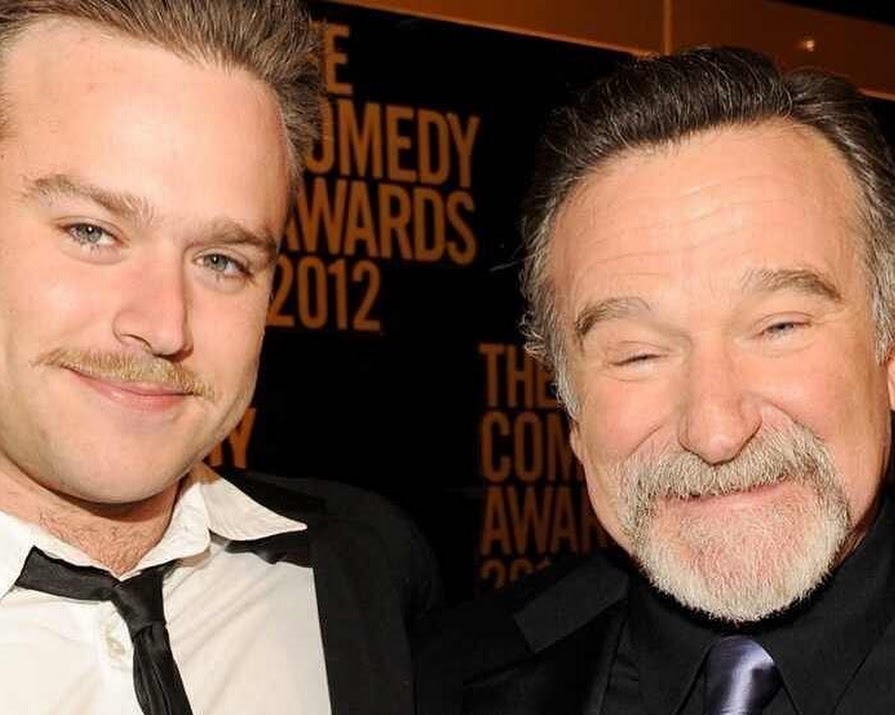
Zachary Williams: ‘It felt like helplessness… I didn’t know what I could do’
By Jennifer McShane
22nd Jul 2019
22nd Jul 2019
The son of late actor Robin Williams has spoken about the helplessness he felt trying to support his father through mental health issues. It’s a reminder that family members need and want more tools to support those they love going through emotionally distressing times
Five years after the death of the beloved Robin Williams’ death, his son Zak has publically spoken out about the particular burden that children of parents struggling with mental illness can feel. He was struggling, he said, as he felt “helplessness” as he watched his father suffer.
“It was sad to see someone who was suffering so,” Zachary, who works as a mental health support advocate told Good Morning Britain. “As a family member and a child, you want to do everything you can to help soothe and ease what seemed to be intense personal pain.
“There were times where it felt like there was helplessness from my part, I didn’t know what I could do, or how I could be of the best support.”
“Amongst those people who were close to him, we all loved him so and found it difficult because he wasn’t always open to sharing his personal pain and struggle,” he continued. “And we noticed that over a period of time.”
Robin Williams’ eldest son Zak reflects on his father’s struggles, as the fifth anniversary of the actor’s death approaches ? pic.twitter.com/krlYkTAh3r
— Good Morning Britain (@GMB) July 21, 2019
He explained that it was extremely difficult watching his father continuing to work and perform despite his mental illness. “It was heartbreaking because he still went out and wanted to share his feelings of laughter and humour with the world. And while he was suffering and struggling, he still went out and performed,” Zachary said. “I admire him and loved him so, and having to share him was hard.”
Zachary’s sister Zelda, has also spoken about the grief she felt upon losing her dad on social media and how she might offer advice and help to those going through something similar.
View this post on Instagram
“…For those suffering from depression, I know how dark and endless that tunnel can feel, but if happiness seems impossible to find, please hold on to the possibility of hope, faint though it may be. Because I promise you, there’s enough nights under the same yellow moon for all of us to share, no matter how or when you find your way there.”
The right support
Watching a family member in distress is an extremely painful, very isolating experience – especially if you’re young and it involves a parent. You’re not a fully-formed adult, so your parent is naturally unable to communicate to you as he would with another adult, so he or she will gloss over what is so visible to you. You do feel helpless; stuck in superglue, you’re watching it happen, but feel frozen, unable to reach out in a manner which would be truly impactful.
I’ve watched a family member go through this. The highs and lows of the mood swings, the change in atmosphere over something everything and nothing at all, the cloud that can linger in the place that should be a safe haven. It’s tough to stand on the sidelines as a child, knowing that you should do something, anything more to help but you can not.
Often, when we think about those who struggle with their mental health, we don’t open the conversation to the supporting family or friends who may be watching the adult in question descend further into illness – and be unsure as to what the right next step for us might be.
The HSE suggests a number of aids to help you through such a difficult period, but namely, they say that you should be looking after your own mental health just as much – and that it’s okay to ask for help.
Aware, Shine and Bodywhys all run support groups, and you can also download a guide that can offer more practical tips and advice.
Main photograph: @ENews
More like this:
Related: ‘I’m pushing back against the stigma surrounding depressive illness and suicide’
Related: Singer Brian Wilson’s deeply honest statement on his mental health is a rare gift
Related: Britney Spears’ ‘me time’ is an opportunity to change how we talk about mental health
Related: Baby blues: Is maternal mental illness still too taboo to portray realistically























